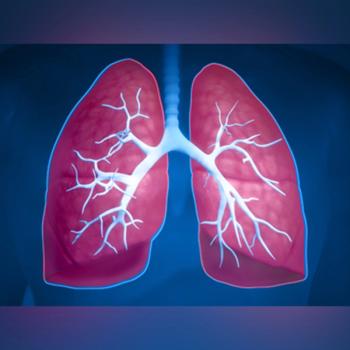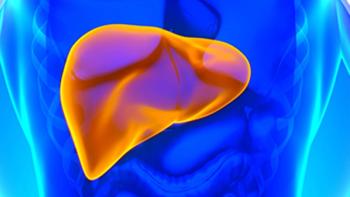
Ivonescimab plus chemotherapy improved progression-free survival and response rates with manageable safety vs tislelizumab in advanced squamous NSCLC.

Kristi Rosa joined MJH Life Sciences in 2016 and has since held several positions within the company. Prior to working at the company, she served as lead copywriter and marketing coordinator at The Strand Theater. Email: krosa@onclive.com

Ivonescimab plus chemotherapy improved progression-free survival and response rates with manageable safety vs tislelizumab in advanced squamous NSCLC.

FLAURA2 data show osimertinib plus chemotherapy significantly improves overall survival vs osimertinib alone in frontline EGFR+ advanced NSCLC.

Nivolumab plus chemotherapy significantly improved OS vs chemo alone in resectable NSCLC, per updated CheckMate-816 findings.

Final KEYNOTE-A18 results show sustained survival benefit with pembrolizumab plus concurrent chemoradiation in locally advanced cervical cancer.

Sacituzumab govitecan/pembrolizumab in the first line lengthened PFS vs chemotherapy/pembrolizumab in PD-L1+ metastatic triple-negative breast cancer.

First-line maintenance therapy with lurbinectedin plus atezolizumab has the potential to become a new standard of care in extensive-stage small cell lung cancer.

Data from the CEPHEUS trial support the use of D-VRd in patients with transplant-ineligible or -deferred multiple myeloma who can tolerate bortezomib.

“When discussing treatment options with patients, it is important to consider efficacy, safety, and the impact of treatment on patients’ quality of life [QOL]…,” noted Brenda Martone, RN, APP.

Pacritinib showed early activity and was safe for patients with multi-refractory chronic graft-vs-host disease.

The combination of amivantamab and Lazertinib improved long-term survival over osimertinib in patients with EGFR-mutated non-small cell lung cancer.

The FDA approved tislelizumab-jsgr (Tevimbra) with platinum chemotherapy as a first-line treatment for adults with PD-L1-positive, unresectable or metastatic esophageal squamous cell carcinoma.

The FDA granted SIGX1094 fast track status as a treatment option for diffuse gastric cancer.

Results from the PEACOCC trial warrant further investigation into treatment with pembrolizumab in patients with previously treated CCGC.

The FDA has approved sotorasib with panitumumab for adult patients with KRAS G12C-mutated metastatic colorectal cancer (mCRC) whose disease progressed after chemotherapy.

Durvalumab improved progression-free survival in unresectable NSCLC patients without progression post-chemoradiotherapy, reducing disease progression risk by 25% compared to placebo.

The antibody-drug conjugate showed a higher objective response rate but failed to meet the primary OS endpoint in patients with pretreated advanced urothelial carcinoma.

Zongertinib achieved a 71% objective response rate and 93% disease control rate in patients with HER2-mutant NSCLC at a dose of 120 mg.

Lenvatinib showed a median PFS of 5.4 months in advanced HCC patients following treatment with atezolizumab/bevacizumab, meeting the primary endpoint.

The combination treatment of elacestrant and abemaciclib provided clinical benefit with acceptable safety in patients with ER-positive, HER2-negative advanced or metastatic breast cancer.

An FDA approval was granted for cosibelimab-ipdl for the treatment of patients with locally advanced or metastatic cutaneous squamous cell carcinoma.

Neoadjuvant camrelizumab paired with chemotherapy could represent a new option in early or locally advanced triple-negative breast cancer.

Neoadjuvant patritumab deruxtecan demonstrated comparable responses with lower high-grade adverse effects in patients with high-risk, HR–positive, HER2-negative breast cancer.

Updated data from the DREAMM-7 trial support the use of belantamab mafodotin plus bortezomib/dexamethasone as a potential new standard of care in relapsed or refractory multiple myeloma, according to Vania Hungria, MD, PhD.

Treatment with tafasitamab for relapsed/refractory DLBCL in the United States was supported by data from a retrospective analysis.

Based on findings from a phase 2 expansion cohort, the FDA granted breakthrough therapy designation to sacituzumab tirumotecan for use in select patients with EGFR+ non–small cell lung cancer.

The FDA has granted fast track designation to LBS-007 for the treatment of patients with acute myeloid leukemia.

The FDA has approved revumenib (Revuforj) for the treatment of adult and pediatric patients aged 1 year and older with relapsed or refractory acute leukemia and a KMT2A translocation.

Cilta-cel led to high response rates and a promising safety profile in a real-world population of patients with relapsed/refractory myeloma.

Belrestotug plus dostarlimab-gxly improved ORR in patients with previously untreated, unresectable, locally advanced or metastatic, PD-L1–high NSCLC.

Pembrolizumab led to improved survival over ipilimumab in patients with unresectable advanced melanoma, according to long-term data.

Published: March 17th 2021 | Updated:

Published: August 20th 2021 | Updated:

Published: May 27th 2021 | Updated:

Published: March 4th 2021 | Updated:

Published: February 12th 2021 | Updated:

Published: September 6th 2021 | Updated: